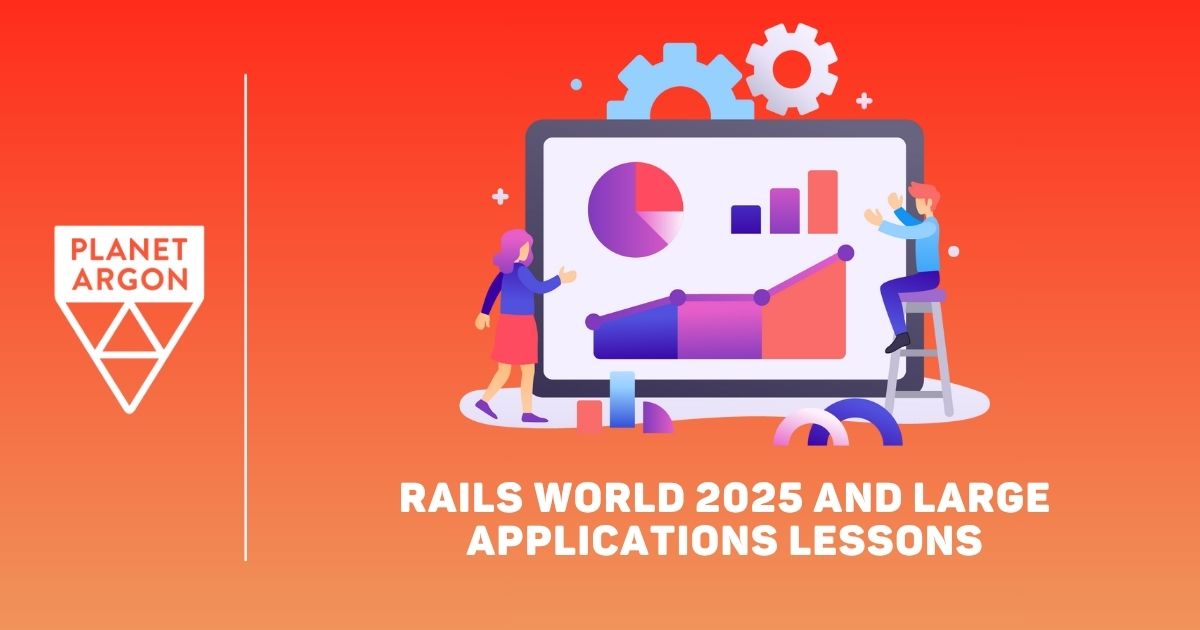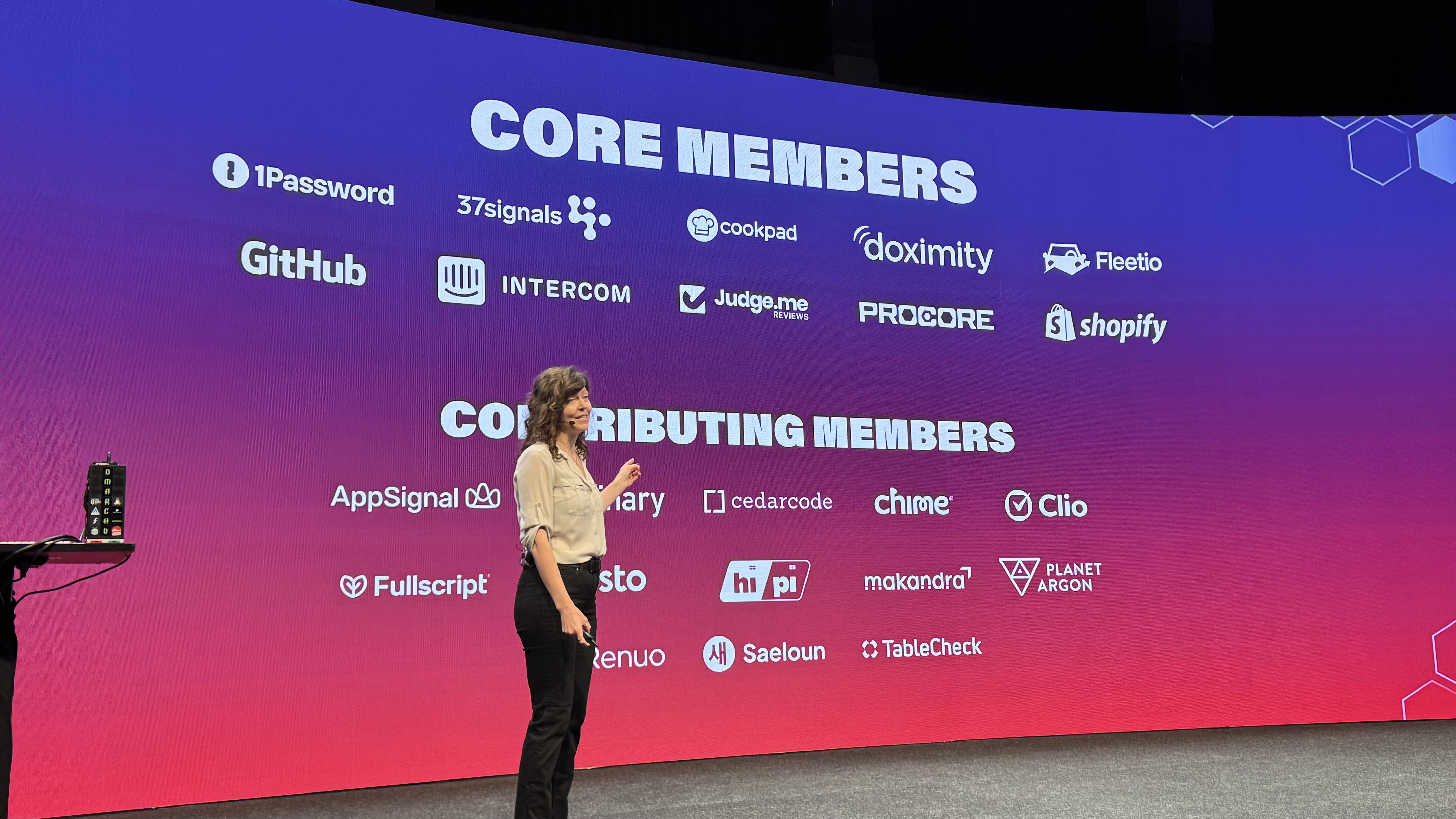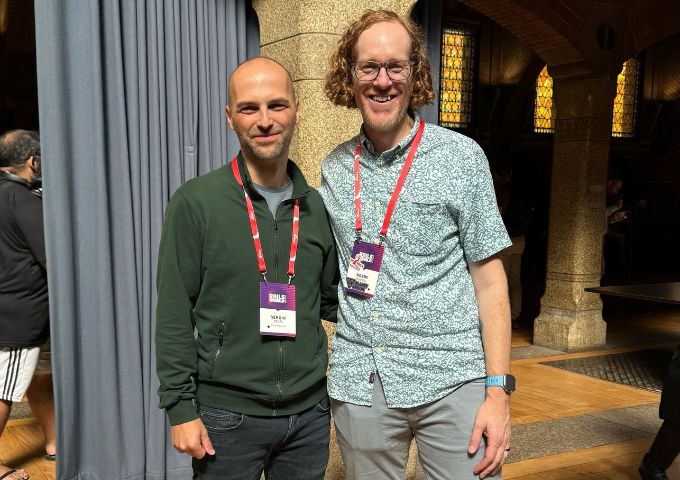
Two years ago, I was in the same venue in Amsterdam, attending Rails World 2023, which was packed with great presentations and a very relaxed and optimistic vibe. This time, I was sure Rails World 2025 will be even more amazing.
The first thing I notice at Rails World is the optimism and friendliness of everyone attending. It's the easiest way to join a few hundred engineers with the same interests as I have, and it's easy to share personal stories about work and life. This year, I met new people and heard some very interesting stories about how they manage their Rails apps and how they adapt to surprises and unknowns.

Setting the Tone
DHH's opening keynote was wonderful because apparently, an important objective is helping the developers pay less or nothing to corporations! Tools added in the last few years allow full control of both our apps and the software and hardware they're running on, plus they force developers to learn a bit of Linux and OS setup and security, great skills to a Rails developer.
It's great to see the features being added to Rails in the next year, as this helps us plan gradual transitions to new features or adoptions of new tools and functionalities.
One surprise highlight was Omarchy, DHH’s new Arch-based Linux build. It follows his earlier Omakub project from Rails World 2023. I'm curious what "Oma" means to DHH, since he seems to prefer this prefix in his Linux builds.
Our Software Delivery Manager, Michael, has already installed Omarchy on a home computer and enjoyed doing that very much. I'm a Fedora user myself, and Arch is one Linux distribution I have never tried, but I may install Omarchy in a VM to see if my love for Fedora can be shaken.
Lessons on Scaling Rails Applications
This year, I was very interested in talks related to scaling Rails apps.
The first one that caught my attention was Mike Dalessio's presentation on Multi-Tenant Rails talk.
I tried something similar a few years ago when I was trying to refactor an application to allow each user to have their own SQLite database. Imagine the user signing up to your service, then selecting a cloud location to store their own database; that would truly be a step forward in user data privacy! This is something currently under development and only supports SQLite, but seeing the complexity of this work also reminds us how many modules Rails has.
We may not use some of them in our apps, but when you add this kind of support to Rails, you have to take into account every affected module. I enjoyed very much Mike's presentation and hope this feature will be available soon and even extended to other database engines. Check out activerecord-tenanted if you're curious!
I also attended Peter Zhu's presentation about Ruby Stability at Scale. There's always something to learn when attending a presentation on how to debug and identify application crashes. The complexity of the subject is amazing, and seeing how low-level they need to go to have the full picture shows the big difference between large applications like Shopify and small or medium applications, which most of us work with. Watching the presentation requires a lot of attention, but if you have Kung Fu-like Ruby skills, you will learn a few new things on how to properly debug very complex issues in a Ruby on Rails stack.
Another interesting and fun presentation was Jack Sharkey talking about The $1B Rails Startup. This story and Jack's way of presenting remind us that being enthusiastic about what we're working on and never giving up are two necessary ingredients to success. If you haven't watched it already, I recommend you do; it's one success story about young engineers wanting to succeed.
Coding in small spaces for real, never-ending nights of coding and debugging, being inventive about how to get your expert engineer to react and fix an overwhelmed application infrastructure by sending an Uber driver to his home, plus it also speaks about the misconception that Rails cannot scale, something only non-Rails developers will say. It's not about the framework, it's about having the right skills and attitude. Very nice presentation indeed!
The Evolution of Rails (and Us)
Aaron Patterson's closing keynote reminded us that Rails and the community around it keeps evolving in quiet but meaningful ways. (Plus, we learned that Aaron speaks Japanese!)
The features we’ll soon rely on are already being built, often by people who’ve been shaping Rails since the beginning. That sense of ongoing progress mirrors how we think about our own work at Planet Argon: helping apps grow into their next chapter instead of starting over. As Rails moves forward, so do we!
